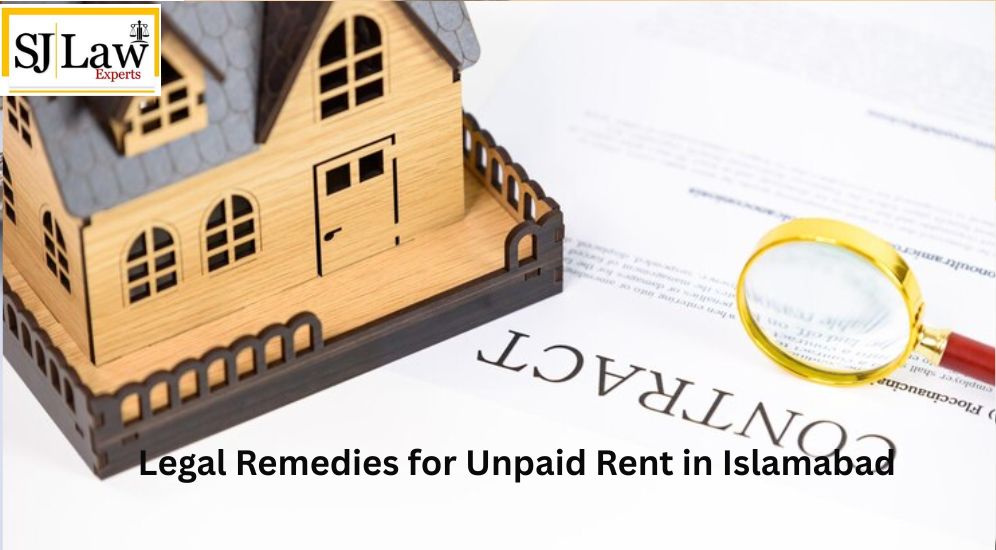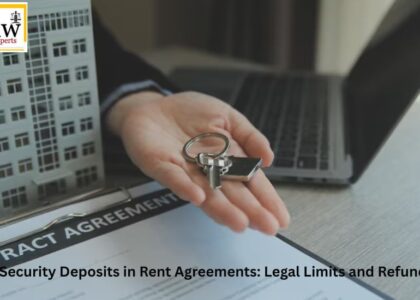Unpaid rent can become a pressing concern for landlords, particularly when tenants refuse to cooperate. In Islamabad, the legal system offers a number of effective remedies that landlords can use to recover their dues and protect their property rights. This article provides a detailed, step-by-step guide on how landlords can deal with rent defaults using legal avenues provided under the Islamabad Rent Restriction Ordinance, 2001.
Understanding the Legal Framework in Islamabad
To begin with, it’s essential to understand the Islamabad Rent Restriction Ordinance, 2001, which governs landlord-tenant relationships.
Notably, this ordinance outlines:
- The requirement for written and registered tenancy agreements.
- The process for determining fair rental value.
- Legal options for eviction in case of rent default.
In addition, the ordinance places responsibilities on both the tenant and the landlord to ensure a fair and transparent relationship.
When Does Non-Payment Constitute a Legal Offense?
First and foremost, non-payment of rent becomes legally actionable when a tenant fails to pay rent for more than two consecutive months without any justifiable reason.
Subsequently, the landlord is entitled to:
- Issue a legal notice demanding payment.
- Initiate eviction proceedings if the tenant fails to comply.
Therefore, landlords must keep accurate records of rent payments and communication with the tenant to support their claims in court.
Issuing a Legal Notice: The First Formal Step
Before taking legal action, the landlord must serve a formal legal notice to the tenant.
Specifically, this notice must:
- Mention the amount due.
- Provide a 15-day window for payment.
- Warn of impending legal consequences if the rent is not cleared.
Furthermore, sending the notice via registered courier is crucial for maintaining a legal trail.
Proceeding to the Rent Controller
If the tenant does not respond, the next logical step is to approach the Rent Controller.
Steps Involved Include:
- Drafting a formal petition with all relevant documents.
- Attaching copies of the rental agreement, legal notice, and payment history.
- Appearing in court for hearings and presenting your case.
Eventually, if the tenant is found guilty of non-payment, the Rent Controller may issue an eviction order and direct the tenant to clear all dues.
Recovery of Rent via Civil Suit
On the other hand, if the landlord wants to recover the unpaid amount without terminating the tenancy, they can file a civil suit under the Civil Procedure Code (CPC).
To illustrate:
- The landlord must file the suit within three years from the date of default.
- Evidence of the unpaid rent, such as bank statements or receipts, must be presented.
- The court may order recovery from the tenant’s property if the case is proven.
Thus, this route is suitable for landlords who wish to retain the tenant but ensure their financial rights are protected.
Enforcing Court Orders with Police Help
In cases where tenants ignore eviction orders, the law permits landlords to seek police assistance.
Specifically, Section 47 of the Rent Restriction Ordinance allows the involvement of law enforcement agencies in implementing the Rent Controller’s decision.
Consequently, landlords regain possession of their property through legal means without resorting to illegal or forceful eviction methods.
Alternative Dispute Resolution (ADR): A Constructive Approach
Alternatively, many disputes can be resolved through Alternative Dispute Resolution (ADR) methods such as mediation or arbitration.
For example, if both parties are open to negotiation, they can avoid the long and expensive court process.
Moreover, ADR can preserve ongoing rental relationships, making it a preferred choice for landlords dealing with otherwise cooperative tenants.
How to Prevent Future Rent Defaults
To avoid similar issues in the future, landlords should take preventive measures:
- Always insist on written agreements.
- Include a clause for penalties on late payments.
- Use bank transfers to maintain a digital trail of rent payments.
- Perform background checks on prospective tenants.
- Consult a legal advisor before drafting agreements.
As a result, landlords can minimize risk and protect their investments more effectively.
📞 Contact SJ Law Experts Today
Trust SJ Law Experts to handle your case with professionalism, empathy, and precision.
📌 Schedule Your Legal Consultation:
- 📱 WhatsApp/Phone: +92 (0) 335-411-2288
- 📧 Email: SJLawExperts@gmail.com
- 📍 Office: No. 1, First Floor, Al Anayat Mall, Above Faysal Bank, G-11 Markaz, Islamabad, Pakistan
- 🌐 https://sjlawexperts.com
The Importance of Legal Counsel
In many situations, legal advice is not just helpful—it’s essential.
Experienced property lawyers in Islamabad can:
- Ensure your tenancy agreements are legally binding.
- Assist in serving legal notices and filing cases.
- Represent you in court and speed up the litigation process.
Therefore, having a reliable legal partner can save landlords from lengthy delays and increase the likelihood of favorable outcomes.
Conclusion
Unpaid rent is not just a financial inconvenience; it’s a breach of contract that has legal consequences. Landlords in Islamabad have several remedies at their disposal, ranging from legal notices to civil suits and eviction orders. By acting promptly and legally, landlords can recover their dues and protect their property from misuse.
Ultimately, knowing your legal rights—and how to enforce them—can make all the difference in property management.





